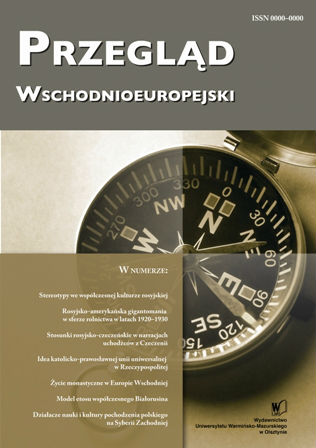Отсутствие словоизменения у нарицательных существительных на согласный: границы явления в современной русской реч
Absence of inflexion of common nouns ending in a consonant: the boundary of the phenomenon in the modern Russian speech
Author(s): Elena MarinovaSubject(s): Theoretical Linguistics, Applied Linguistics
Published by: Wydawnictwo Uniwersytetu Warmińsko-Mazurskiego w Olsztynie
Keywords: indeclinable nouns ending in a consonant; grammatical variation; analytical tendencies; traditional inflexion; factors supporting indeclinability
Summary/Abstract: The study was based on the texts from the “Electronic corpus of Russian newspapers” (MSU project), “Integrum”, “Russian national corpus” and recordings of speech, from the beginning of the XXI century. The aim is to analyze the absence of inflexion of common nouns ending in a consonant. The relevance of the research lies in the fact that the concerned phenomenon, previously peripheral, is becoming more and more frequent. The article describes the factors supporting indeclinability of nouns ending in a consonant: multi-functionality of a word, analogy with a proper name (onim), foreign graphics, fashion factor; as well as new categories of nouns ending in a consonant, which are used without inflexion. The analysis shows that in certain fields of the modern Russian language, deep mechanisms of traditional inflexion compete with analytical tendencies. The facts of grammatical variation of new foreign nouns prove it. The study was carried out in the framework of dynamic language description method.
Journal: Przegląd Wschodnioeuropejski
- Issue Year: IX/2018
- Issue No: 2
- Page Range: 191-199
- Page Count: 9
- Language: Russian

